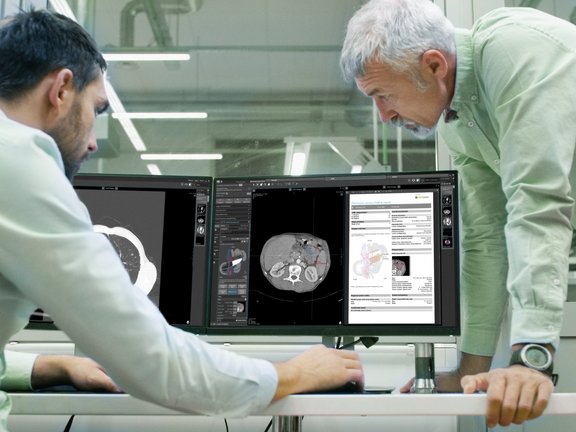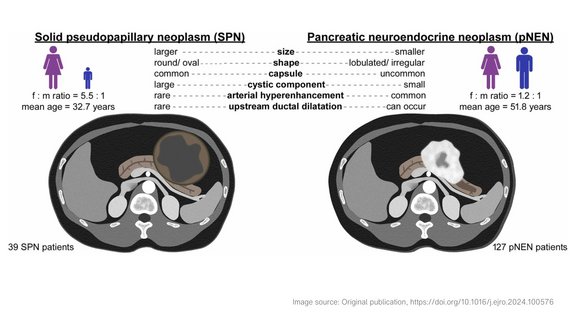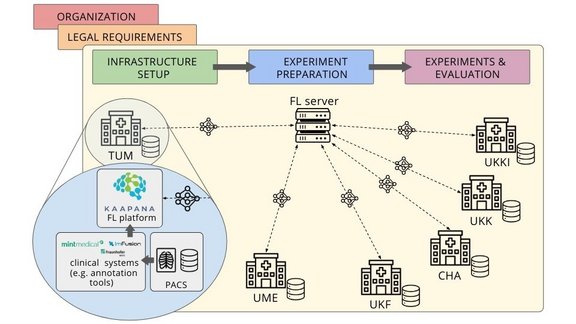During the daily clinical routine, radiological reports on pancreatic lesions are often written as freeform texts. This causes several problems, in particular the loss of important information, as the level of detail, structure, and terminology used in these reports often varies greatly. In order to ensure an optimal level of patient care, the range of available information must be used in a targeted manner, also in regard to staging and surgical planning. This is facilitated by structured reporting, which enables completeness, reproducibility, and clarity in interdisciplinary communication.
In order to jointly develop structured and quality-assured reading templates for pancreatic lesions in an interdisciplinary consensus meeting, representatives of the German Radiological Society (DRG) met with members of other expert associations, working groups as well as with other radiologists, oncologists, and surgeons. Dr. Matthias Baumhauer, CEO of Mint Medical GmbH, also participated in this meeting. In addition, members of the DRG and the German Society for General and Visceral Surgery (DGAV) were questioned on the topic with the help of an online consensus survey. Subsequently, the experts reviewed all results and compiled them into a manuscript. This acts as a basis for the current reading templates for solid and cystic pancreatic lesions published by the DRG.
Shortly after completion, these templates were also implemented in our software mint Lesion™. They are regularly reviewed and revised by experts, just like the DRG's templates. With mint Lesion™, radiologists can seamlessly integrate all the advantages of structured reporting into their clinical routine. The platform acts as a cognitive assistant to the user and enables the clear and complete preparation of all relevant data. Thus, no information is lost in interdisciplinary communication, which is crucial for optimal clinical care.
Click the here to read the full paper on structured reporting of solid and cystic pancreatic lesions.

Structured Reporting of Solid and Cystic Pancreatic Lesions in CT and MRI: Consensus-Based Reporting Templates of the German Radiological Society (DRG)
Related Resources
Related Resources

Key Imaging Features for Differentiating Rare Pancreatic Tumors
Solid pseudopapillary neoplasms (SPN), also known as Frantz tumors, are rare tumors of the pancreas. Due to overlapping features of SPN and pancreatic…

Heidelberg University Hospital: Key Imaging Features to Distinguish Solid Pseudopapillary Neoplasms from Pancreatic Neuroendocrine Neoplasms
Solid pseudopapillary neoplasms (SPNs), or Frantz tumors, are rare pancreatic tumors accounting for 2-3% of all pancreatic neoplasms. These tumors…

RACOON: A Guide to Bridging the Gap Between Simulated and Real-World Federated Learning Research
Deep learning (DL) has become an important part of radiological image analysis. To train these deep-learning models, access to large and diverse…